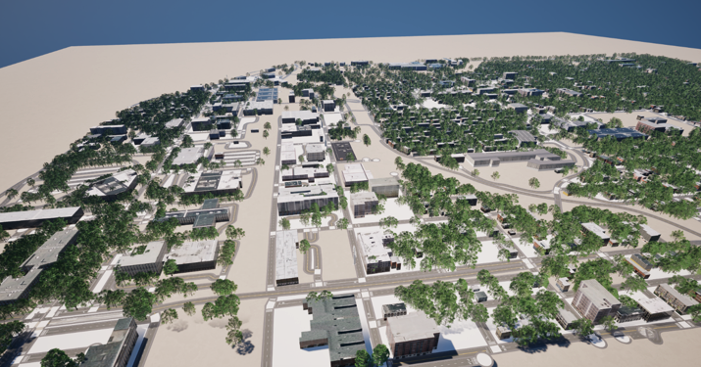An Ethical Urban Digital Twin to Mitigate Heat in Indoor and Outdoor Environments

Project Team
Principal Investigator:
Wei Zhai, PhD, Assistant Professor, Urban and Regional Planning
Researchers:
Esteban López Ochoa, Assistant Professor, Urban and Regional Planning
Ryun Jung (RJ) Lee, Assistant Professor, Urban and Regional Planning
Peyman (Paul) NajafiRad, Associate Professor, Computer Science
Neil Debbage, Associate Professor, Geography
Xinyue Ye, Urban and Regional Planning, Texas A&M University
Project Sponsor:
National Science Foundation
Project Description
Cities face growing urban heat island challenges due to climate change, impacting both indoor and outdoor thermal environments. Mitigation measures like improved insulation, air conditioning, natural ventilation, and responsive urban design are essential to reduce heat-related health risks. However, current research often separates indoor and outdoor factors, limiting integrated solutions. This project introduces an Ethical Urban Digital Twin (EUDT) to bridge this gap, focusing on San Antonio's Westside, a historically disadvantaged Hispanic community. A collaboration between UTSA, Texas A&M University, and local partners like the Historical Westside Residents Association and the City of San Antonio, the project prototypes digital twins for residential, office, and business spaces, integrating indoor and outdoor areas. It also addresses ethical concerns, such as privacy and bias, by engaging the community in data collection and feedback. By combining citizen science and user-centered design, the project aims to enhance urban resilience and inform equitable heat mitigation strategies.


